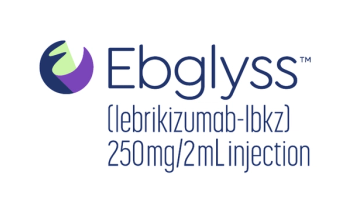
- MHE March 2023
- Volume 33
- Issue 03
The List of PBM Formulary Exclusions Got Longer in 2023
Pharmacy benefit managers say they exclude high-cost drugs and have alternatives on their formularies. Critics say exclusions narrow patient options and may put effective medication financially out of reach.
The number of drugs excluded from the three largest pharmacy benefit manager (PBM) formularies reached an all-time high in 2023, despite concerns that profits are being put ahead of patient access. This year, CVS Caremark, Optum Rx and Express Scripts — which together handle 80% of all prescriptions in the United States — each have roughly 600 medications on their standard formulary exclusion lists, according to Adam Fein, Ph.D., CEO of
Exclusions leave patients with fewer options for treatment unless they can afford the out-of-pocket costs of buying drugs that are not covered by the insurer. What is even more disturbing are the trends within the trend of formulary exclusions, critics say.
“Now PBMs are often excluding medicines for conditions where it is particularly important for patients and physicians to have multiple treatment options, such as oncology and autoimmune disorders,” said a
Many of the excluded products may be generics or biosimilars with lower list prices, which the PBMs push aside in favor of the brand medicines. Observers state that rebates offered by brand manufacturers are often to blame for this practice, although patients may get stuck with higher copays in the end.
“These formularies have important real-world consequences for patients,” Fein wrote in a blog post. He pointed to the restricted availability of rapid-acting insulin products. This year, the big three PBMs have settled on a favorable formulary placement for Eli Lilly and Company’s Humalog (insulin lispro injection) and Humulin (human insulin injection) or Novo Nordisk’s NovoLog (insulin aspart injection) and Novolin (human insulin injection), but “no major formulary prefers the low list-price versions of the branded products.”
In the long-acting insulin category, Viatris Inc has launched the biosimilar Semglee (insulin glargine-yfgn) and a lower-priced identical unbranded biosimilar. Still, the majority (52%) of new-to-brand commercial prescriptions (patients taking the drug for the first time) in 2022 were written for the reference product, Sanofi’s Lantus (insulin glargine), according to Fein. “Presumably, Sanofi’s rebating practices have slowed biosimilar adoption,” Fein said.
This is the year that biosimilars of Humira (adalimumab) finally arrive on market, and the medical community will be watching closely to see how many of these get on the PBMs’ preferred formularies. Amgen launched Amjevita (adalimumab-atto) in late January at two list prices. CVS Caremark said Humira will remain the preferred product on its formulary, with Amjevita on the nonpreferred brand tier. Express Scripts and Optum Rx spokespeople said the companies were still weighing their options.
In an analysis of drug formulary exclusions published last year in Health Science Journal, the authors noted that individuals with drug coverage governed by Express Scripts 2022 National Preferred Formulary were often left without access to any version of an excluded drug. “Overall, 42% of Express Scripts’ 2022 formulary exclusions mandate(d) a non–therapeutically equivalent medicine based on differences in active ingredient (and) formulation or no therapeutic alternative,” wrote lead author
Such exclusions can force patients and their providers into therapeutic choices that may have harmful clinical or financial consequences, wrote Popovian and his colleagues. Roughly half of the 2022 exclusions by the big three offered no clear economic or medical benefit to patients, their report stated.
Express Scripts’ formulary decisions are based on “clinical appropriateness, not drug cost,” according to their website. “The national preferred formulary has excluded medications that don’t provide greater clinical value than lower-cost alternatives,” the PBM wrote.
Major PBMs began the practice of formulary exclusions in 2011. The exclusions were initially applied to just the pharmacy benefit but have been creeping over to the medical benefit side, partly through the practice of white bagging, in which payers refuse to cover physician-administered drugs unless they are delivered (white bagged) to the physicians by an authorized pharmacy. Many states are moving to bring white bagging under control via legislation. Louisiana now does not allow plans to refuse to pay providers for supplying clinician-administered drugs. Additionally, Arkansas’ anti–white bagging law applies only to hematology and oncology and dictates that plans must cover medical and pharmacy benefit pathways. Patients and providers can choose whichever pathway they prefer.
Tony Hagen is a medical, business and environmental editor and writer
in Florence, New Jersey.
Articles in this issue
almost 3 years ago
No Prescription Needed. But Will Insurers Cover OTC Hearing Aids?almost 3 years ago
Nontraditional Players Are Getting Into Healthcare Gamealmost 3 years ago
Digital Health Took Off. How To Keep it Flyingalmost 3 years ago
RSV Vaccine Development Is On the Comeback TrailNewsletter
Get the latest industry news, event updates, and more from Managed healthcare Executive.

























